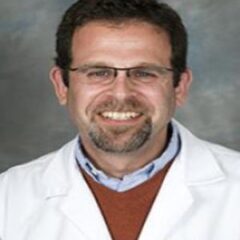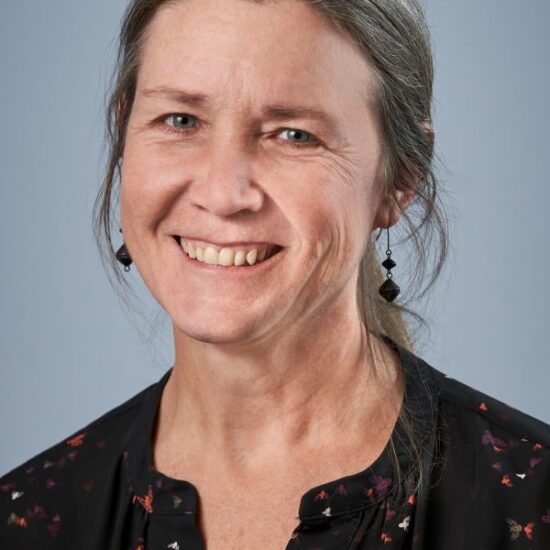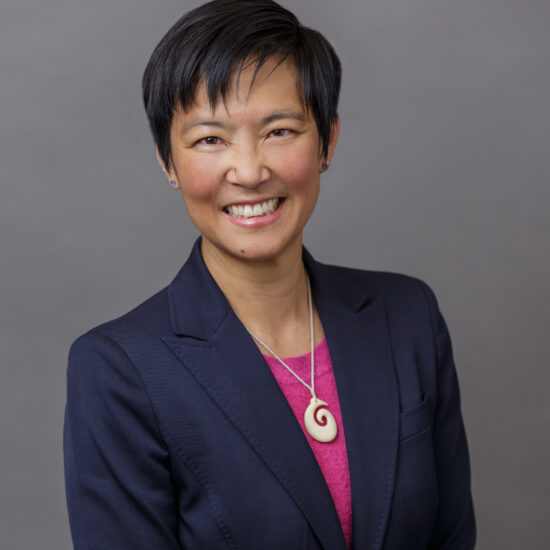Global Emergency Medicine Fellowship
The University of Illinois is the first institution that introduced a fellowship in International Emergency Medicine with the aim to provide training for expertise in management of international emergency medicine and health related issues. As the field of Global Emergency Medicine has developed, our program continues to offer high-quality training and mentorship to help fellows build skills in partnering and collaboration, program management, care delivery, education, ethical research, and capacity building.
Mission Heading link
The Global Emergency Medicine Fellowship at the University of Illinois is committed to training global EM leaders who are engaged in the sustainable development of global humanitarian and emergency care. The program is a 2-year fellowship that provides opportunities for fellows to engage in education and training, global EM research, global EM development, and humanitarian assistance. Fellows obtain their Masters in Public Health while working clinically and participating in numerous global initiatives. Fellows are mentored by faculty from the Department of Emergency Medicine and UIC Center for Global Health.
Fellowship Goals Heading link
- Apply clinical emergency medicine concepts and skills in global health.
- Understand and apply the concepts of sustainability and capacity building in international emergency medicine and global health.
- Develop the ability to assess international health systems and emergency medical care systems and identify pertinent health issues to aid in the design of health programs that address identified needs.
- Develop the knowledge to evaluate the effectiveness and quality of global health programs.
- Establish a network for educational exchange, research, and funding.
- Develop administrative skills to organize and implement emergency and/or international health programs and integrate them into existing health systems.
Core components of fellowship Heading link
Public Health
The fellow will get exposure to the public health issues related to global emergency medicine through obtaining a Masters Degree in Public Health at the University of Illinois School of Public Health. Additionally, fellows participate in coursework related to health in complex humanitarian situations, and fellows have the option of additional coursework in tropical medicine, grant writing, or other approved faculty development coursework.
Research
Each fellow is required to become involved in some aspect of a research project during the program. It is expected that each fellow will produce a publishable manuscript at the end of the fellowship. Fellows will have the support of a rich global health faculty mentorship network at the UIC Center for Global Health.
Education
Fellows will have the opportunity to be educators for global health students, residents and international trainees. Fellows can collaboratively participate in teaching, curriculum design and implementation, and evaluation.
Administration
Fellows will engage in administrative activities in the form of organizing, planning, and implementing different aspects of projects. He/she will also obtain experience through involvement with agencies or programs within other institutions.
International Fieldwork
The fellow will be working abroad on international health projects. These experiences will comprise of assessment and evaluation, research, provision of basic and/or emergency health care, implementation of new training curricula, public health interventions, and disaster and humanitarian response. It is expected that the fellow will be able to generate, at a minimum, a report from each project/trip. Depending upon coursework and clinical work responsibilities, the fellow may have up to 4-5 months of international experience. Fieldwork length varies from 1 to 8 weeks at at time. International fieldwork is generally arranged by the fellow, with supervision of the fellowship director. Fellows may participate in ongoing global health initiatives with multidisciplinary faculty from UIC and partner institutions, and/or fellows may suggest independent projects.
Clinical
The fellow will work as clinical faculty in the Emergency Department at a University of Illinois teaching hospital and an affiliated community hospital. The fellow will be responsible for clinical work in the ED, as well as conference and/or grand round presentations. Responsibility: 16 hours per week for two years.
Compensation Package
Fellows earn a competitive salary, a full tuition waiver for their MPH coursework, comprehensive medical benefits, and an additional stipend that can be used for travel-related expenses, course fees, conference fees or other fellowship-related expenses.
Application Info Heading link
*We do NOT have a position to offer starting in 2024 and are currently NOT accepting applications.
Fellowship candidates must be board eligible or certified by the July 1 fellowship start date. This generally means that fellows have completed a residency program in the U.S. Board eligible or certified applicants in specialties other than emergency medicine may be considered on an individual basis. Applicants must be U.S. citizens. Applicants who have already obtained a Masters in Public Health degree may be considered for a shorter term fellowship.
Application Process
Interested applicants should send an electronic copy of the following to the program director, Stacey Chamberlain, at staceymd@uic.edu.
- A letter of intent
- A personal statement
- A curriculum vitae
- Three letters of recommendation
Accepted candidates will have to apply independently to the MPH program of the University of Illinois School of Public Health by the February 1 deadline.
*We do NOT have a position to offer starting in 2024 and are currently NOT accepting applications.
Current projects Heading link
-
Current projects
Emergency Medicine Capacity Building in Uganda
In partnership with Global Emergency Care and numerous Ugandan and US University partners, UIC has been working to develop emergency care capacity in Uganda. Fellows have participated in curriculum development, clinical instruction, and research opportunities.
Emergency Care Capacity Development and HIV Screening in Kenya
UIC has been working with partner institutions in Kenya to evaluate their emergency care capacity and investigate the feasibility of ED-based HIV screening and linkage to care. Fellows have participated in training programs and research activities.
Pre-hospital cardiac arrest and STEMI care in India
UIC has a strong multidisciplinary partnership with MS Ramaiah University on numerous initiatives, including a project funded by Medtronic to improve cardiac arrest and STEMI care for patients in the Bangalore region. Fellows have participated in project planning, administrative, and research activities.
Disaster Risk Reduction in the Caribbean
In partnership with agencies in Haiti and St. Kitts and Nevis, UIC has been working with community members to reduce disaster risks and improve the delivery of health care. Fellows have participated in project planning and administration, curriculum development, training, and research activities.
Worldwide projects
UIC has a multidisciplinary Center for Global Health with faculty working on active projects globally including projects (in addition to the ones already listed) in Ethiopia, Kosovo, Tajikistan, Nepal, Peru, Bolivia, Cuba, Nigeria, Ghana, Senegal, the Dominican Republic, Thailand, and Vietnam among others. Fellows have abundant opportunities to collaborate with global health faculty on these initiatives.
-
Publications
- Moresky RT, Razzak JA, Reynolds TA, Wallis LA, Wachira BW, Nyirenda M, Carlo WA, Lin JY, et al. “Advancing Research on Emergency Care Systems in Low-and Middle-Income Countries: Ensuring Peopled Centered, High Quality Care Delivery” BMJ Glob Health 2019.
- Lin, J. “African Federation of Emergency Medicine Handbook of Acute and Emergency Care” Editor, Neurology Section, Second edition, 2019
- Yantzi, R, van de Walle, G, Lin JY, “The disease isn’t listening to the drug: socio-cultural context of antibiotic misuse for viral respiratory infections in rural Uganda”, Global Public Health. Nov 2018.
- Ramesh A, LaBresh KA, Begeman R, Bobrow B, Campbell T, Chaudhury N, Edison M, Erickson TB, Manning JD, Prabhakar BS, Kotini-Shah P, Shetty N, Williams PA, Vanden Hoek T. Implementing a STEMI system of care in urban Bangalore: Rationale and Study Design for heart rescue India. Contemp Clin Trials Commun. 2018 April.
- Bitter C, Rice B, Periyanayagam U, Dreifuss B, Hammerstedt H, Nelson S, Bisanzo, M, Maling S, Chamberlain S. What resources are used in emergency departments in rural sub-Saharan Africa? A retrospective analysis of patient care in a district-level hospital in Uganda. BMJ Open. 2018 February 27.
- Dissanayake V, Dalka ET, Koh C, Bisanzo M, Brandt RS, Erickson TB, Chamberlain S. A pilot study on the management and outcomes of self-poisoning in a rural Ugandan Emergency Centre. African Journal of Emergency Medicine; 2018 March.
- Roberts J, Lin JY, Weiner S., editors. (Chamberlain S, Bitter C, Dissanayake V, et al. authors). The Nuts and Bolts of Global Emergency Medicine. CreateSpace Independent Publishing Platform. October 2016.
- Rice B, Periyanayagam U, Chamberlain S, et al. Mortality in Children Under Five Receiving Nonphysician Clinician Emergency Care in Uganda. Pediatrics. 2016.
- Chamberlain S, Stolz U, Dreifuss B, Nelson SW, Hammerstedt H, Andinda J, Maling S ,Bisanzo B. “Mortality Related to Acute Illness and Injury in Rural Uganda: Task Shifting to Improve Outcomes”. PLoS ONE. April 7, 2015.
- Quinn R, Wedmore I, Johnson E, Islas A, Anglim A, Zafren K, Bitter C, Mazzorana V. Wilderness Medical Society Practice Guidelines for Basic Wound Management in the Austere Environment. WEMJ. 2014.
- Lin, JY, Budoff A, Dyer, A. “Acceptability of a modular, community-informed disaster risk reduction training programme in Delmas, Haiti.” Consortium of Universities for Global Health, 5th Annual Conference, Lancet Global Health, published online May 10, 2014.
- Hammerstedt H, Maling S, Kasyaba R, Dreifuss B, Chamberlain S, Nelson SW, Bisanzo M, Ezati Isaac. “Addressing WHO Resolution 60.22: A Pilot Project to Create Access to Acute Care Services in Uganda.” Ann Emerg Med. Published online March 2014.
-
Abstracts/Presentations of Fellows
- Bitter C, Lin JY, ADAPT: Academic Development and Professionalism Track. Poster. International Conference on Emergency Medicine; Seoul, South Korea; June 2019
- Singh M, Auge-Bronersky K, Mikkilineni V, Ukegbu N, Magero C, Rombosia K, Lin J.Training and infrastructure needs identified through an assessment of emergency care capacity in Kisumu, Kenya. Poster. Consortium of Universities for Global Health Conference; Chicago, IL; March 2019
- Bitter C, Khan, Lin JY. Pre-Test, Post-Test Evaluation of a Trauma Training Conference in Haiti. Poster. ICEM Mexico City; Mexico; June 2018.
- Wells K, Murphy J, Chamberlain S, Rice B. Gender disparity in injury outcomes – increased mortality in female children under five in Uganda. ePoster presentation. Society for Academic Emergency Medicine (SAEM), Indianapolis, IN; May 2018.
- Murphy J, Conroy M, Lin JY. Evaluation of the efficacy of a disaster risk reduction training program in Haiti after Hurricane Matthew. Poster presentation. American Public Health Association (APHA), Orlando, FL; Nov 2017
- Sheriff A. Needs Assessment to Build Capacity for Emergency Medicine Development in Kisumu, Kenya. Poster presentation for International Conference of Emergency Medicine (ICEM); Cape Town, South Africa, April 2016.
- Bitter C, Chamberlain S. Resources Used to Care for Patients at a Rural ED in Uganda. Poster presentation for International Conference of Emergency Medicine (ICEM); Cape Town, South Africa, April 2016.
- Bitter C. Chikungunya in the Caribbean: Lessons for the Next Pandemic. Poster presentation for International Conference of Emergency Medicine (ICEM); Cape Town, South Africa, April 2016.
- Bitter C. Chikungunya Incidence in the Americas: Correlation between local media reports and cases reported to PAHO. American Public Health Association Annual Meeting. Chicago, November 2015.
- Bitter C. Impact of ChikV outbreak on tourism in the Caribbean. Conference of the International Society of Travel Medicine. Quebec City, Canada, May 2015.
- Dissanayake V. Management and Outcomes of Poisoning in Nyakibale Hospital Emergency Care Center, Uganda. North American Congress of Clinical Toxicology. New Orleans, October 2014.
- Dissanayake V. Decontamination Strategies for Poisonings in Nyakibale Hospital Emergency Care Center, Uganda. North American Congress of Clinical Toxicology. New Orleans, October 2014.
Alumni Heading link
-
Our Alumni
Our Alumni
- Naina Bhalla
- Renee King
- Janet Lin
- Vinay Mikkilineni
- Jason Murphy
- Cindy Bitter
- Asim Sheriff
- Vinoo Dissanayake
- Toni Biskup
Our Alumni
- Deborah Kleiman
- Kristiana Kaufmann
- Eugene Oh
- Stacey Chamberlain
- Robert Furno
- Cecilia Cruz
- David Towne
- Emily Walton
Alumni Spotlight Heading link

Dr. Vinodinee Dissanayake completed a combined International Emergency Medicine and Toxicology Fellowship at UIC and the Toxikon Consortium in 2014. Thanks to her mentors at UIC and Cook County, she was able to create a unique joint program that entwined her interests in global toxicology. During her fellowship, she worked on various initiatives in Uganda, Sri Lanka, India and Haiti, including research on the management of poisoned patients in a rural ED in Uganda under the auspices of the Global Emergency Care, and she completed her Master’s capstone on this topic with the hope of improving education and clinical outcomes of pesticide-poisoned patients. After graduating from fellowship, she joined the faculty at Loma Linda University Medical Center as an emergency physician and medical toxicologist where she studied outcomes of snakebite envenomation. In 2018, she joined the faculty at Rush University Medical Center in Chicago to spearhead a social and global health track for emergency residents. Currently she has joined forces with Community Empowerment to enhance resident education and develop educational programs in the Dominican Republic.

Dr. David Townes completed his International Emergency Medicine Fellowship at UIC in 1998. After fellowship, he was appointed as an Epidemic Intelligence Service (EIS) Officer and Medical Epidemiologist in the Malaria Branch at the CDC and served as a Lieutenant Commander in the United States Public Health Service. He joined the faculty at the University of Washington in 2001 in the Division of Emergency Medicine and is currently a Public Health and Medical Technical Advisor to the Office of Foreign Disaster Assistance (OFDA) at the United States Agency for International Development (USAID) and Medical Epidemiologist in the Emergency Response and Recovery Branch (ERRB) at the Centers for Disease Control and Prevention (CDC). He has worked in Antarctica, Costa Rica, Ethiopia, Ghana, Guatemala, Haiti, Indonesia, Jordan, Kenya, Malawi, Mozambique, Russia, Senegal, Tanzania, Turkey, the West Indies, and Zambia. In addition to his global health experience, he has worked extensively in the areas of wilderness and expedition medicine, including serving as an expedition physician in Antarctica, Costa Rica, and on Mt. Kilimanjaro. He has been a physician member of the National Ski Patrol and the Yosemite National Park Search and Rescue Team. He is an editor of Expedition and Wilderness Medicine published by Cambridge University Press in 2009.

